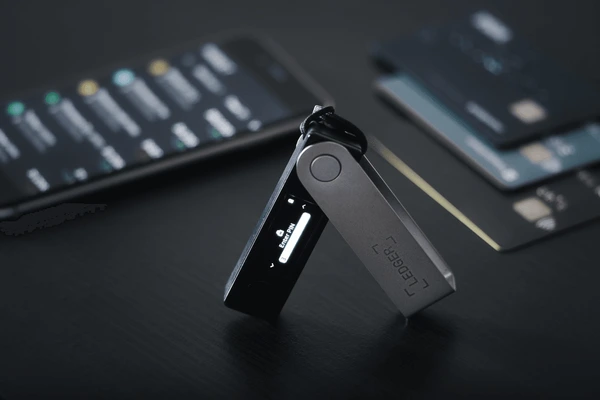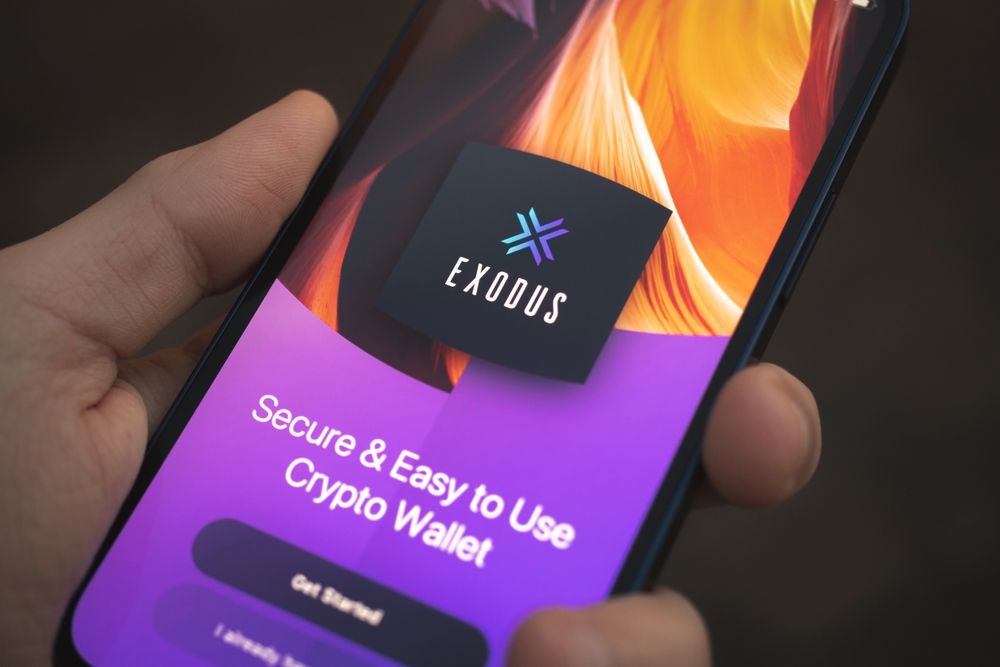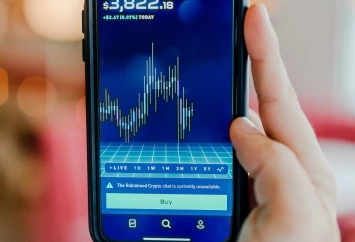Cryptocurrency has revolutionized the way we think about money, investments, and financial independence. As the crypto space continues to evolve, one of the most critical tools for any crypto enthusiast, beginner, or investor is a reliable crypto wallet. Whether you’re storing Bitcoin, Ethereum, or the latest altcoin, choosing the right wallet is essential for security, convenience, and peace of mind.
In this article, we’ll explore the best crypto wallets in 2025, covering hardware, software, and mobile options. We’ll break down their features, pros, and cons, and help you decide which wallet suits your needs. By the end, you’ll have a clear understanding of the top wallets available and how to safeguard your digital assets effectively.
In This Article
- What Is a Crypto Wallet?
- Types of Crypto Wallets
- Hardware Wallets
- Software Wallets
- Mobile Wallets
- Best Hardware Wallets in 2025
- Best Software Wallets in 2025
- Best Mobile Wallets in 2025
- How to Choose the Right Crypto Wallet
- FAQs About Crypto Wallets
What Is a Crypto Wallet?
A crypto wallet is a digital tool that allows you to store, send, and receive cryptocurrencies. Unlike traditional wallets, crypto wallets don’t actually “store” your coins. Instead, they store your private keys—secure digital codes that grant access to your funds on the blockchain.
Think of your private key as the password to your bank account. If someone gains access to it, they can control your funds. That’s why choosing a secure wallet is paramount.
For beginners, understanding the different types of wallets is the first step toward securing your crypto assets. If you’re new to the crypto world, check out our Beginner’s Guide to Cryptocurrency for a comprehensive overview.
Types of Crypto Wallets
Crypto wallets come in various forms, each with its own advantages and trade-offs. Here’s a quick breakdown:
1. Hardware Wallets
Hardware wallets are physical devices designed to store your private keys offline. They are considered the most secure option because they are immune to online hacking attempts.
Pros:
- Maximum security
- Offline storage (cold storage)
- Supports multiple cryptocurrencies
Cons:
- Costly compared to other options
- Less convenient for frequent transactions
2. Software Wallets
Software wallets are applications or programs that you install on your computer or smartphone. They are more convenient than hardware wallets but slightly less secure since they are connected to the internet.
Pros:
- Easy to use
- Free or low-cost
- Great for daily transactions
Cons:
- Vulnerable to malware and hacking
- Requires regular updates
3. Mobile Wallets
Mobile wallets are apps designed for smartphones. They are ideal for users who want to manage their crypto on the go.
Pros:
- Highly convenient
- User-friendly interfaces
- Often include additional features like QR code scanning
Cons:
- Security depends on your phone’s safety
- Limited storage capacity
Best Hardware Wallets in 2025
Hardware wallets remain the gold standard for crypto security. Here are the top options in 2025:

1. Ledger Nano X
The Ledger Nano X continues to dominate the hardware wallet market with its sleek design and advanced security features.
Features:
- Bluetooth connectivity for mobile use
- Supports over 1,500 cryptocurrencies
- Secure Element (SE) chip for enhanced security
Pros:
- Portable and easy to use
- Excellent customer support
- Regular firmware updates
Cons:
- Higher price point
- Bluetooth feature may pose a slight security risk
2. Trezor Model T
The Trezor Model T is another top contender, known for its open-source software and robust security.
Features:
- Touchscreen interface
- Supports over 1,600 cryptocurrencies
- Passphrase protection
Pros:
- High level of security
- User-friendly interface
- Strong community support
Cons:
- Expensive
- Bulkier than other models
3. CoolWallet Pro
The CoolWallet Pro stands out for its credit-card-sized design and mobile compatibility.
Features:
- Bluetooth-enabled
- Supports major cryptocurrencies and NFTs
- Water and tamper-resistant
Pros:
- Extremely portable
- Long battery life
- Great for frequent travelers
Cons:
- Limited storage capacity
- Higher price
Best Software Wallets in 2025
Software wallets are perfect for users who prioritize convenience and accessibility. Here are the best options in 2025:

1. Exodus
Exodus is a popular desktop and mobile wallet known for its intuitive interface and built-in exchange.
Features:
- Supports over 100 cryptocurrencies
- Built-in portfolio tracker
- 24/7 customer support
Pros:
- Easy to use for beginners
- Staking options available
- Free to download
Cons:
- Closed-source software
- Limited advanced features
2. Electrum
Electrum is a lightweight Bitcoin wallet that’s been around since 2011. It’s ideal for Bitcoin purists.
Features:
- Supports Bitcoin and Lightning Network
- Advanced security features like multi-signature support
- Highly customizable
Pros:
- Lightweight and fast
- Open-source software
- Strong security
Cons:
- Only supports Bitcoin
- Not beginner-friendly
3. MetaMask
MetaMask is a browser extension and mobile app wallet designed for Ethereum and ERC-20 tokens.
Features:
- Built-in DApp browser
- Supports Ethereum staking
- Easy integration with DeFi platforms
Pros:
- Great for DeFi users
- Free to use
- Regular updates
Cons:
- Limited to Ethereum-based assets
- Requires careful management of gas fees
Best Mobile Wallets in 2025
Mobile wallets are perfect for managing crypto on the go. Here are the top picks for 2025:

1. Trust Wallet
Trust Wallet is a highly secure and versatile mobile wallet owned by Binance.
Features:
- Supports over 1 million cryptocurrencies
- Built-in DApp browser
- Staking options
Pros:
- User-friendly interface
- Strong security features
- Free to use
Cons:
- Limited customer support
- Can be overwhelming for beginners
2. Coinbase Wallet
Coinbase Wallet is a standalone app from the popular Coinbase exchange.
Features:
- Supports thousands of cryptocurrencies
- Built-in NFT storage
- Easy integration with Coinbase exchange
Pros:
- Highly secure
- Great for beginners
- Regular updates
Cons:
- Limited advanced features
- Higher fees for certain transactions
3. Atomic Wallet
Atomic Wallet is a decentralized wallet that supports a wide range of cryptocurrencies.
Features:
- Built-in atomic swaps
- Supports over 500 cryptocurrencies
- Staking options
Pros:
- No KYC required
- User-friendly
- Strong security
Cons:
- Limited customer support
- Some features require technical knowledge
How to Choose the Right Crypto Wallet
Choosing the right wallet depends on your needs and priorities. Here’s a quick guide:
- Security: If security is your top concern, go for a hardware wallet like Ledger Nano X or Trezor Model T.
- Convenience: For daily transactions, software or mobile wallets like Exodus or Trust Wallet are ideal.
- Multi-Currency Support: If you hold multiple cryptocurrencies, choose a wallet like Atomic Wallet or Trust Wallet.
- Budget: Hardware wallets are more expensive, while software and mobile wallets are often free.
For more tools and resources to manage your crypto portfolio, check out our guide on Essential Crypto Tools.
FAQs About Crypto Wallets
1. What is the safest type of crypto wallet?
Hardware wallets are considered the safest because they store your private keys offline, making them immune to online hacking attempts.
2. Can I use multiple wallets?
Yes, many users have multiple wallets for different purposes, such as a hardware wallet for long-term storage and a mobile wallet for daily transactions.
3. Are mobile wallets secure?
Mobile wallets are secure if you follow best practices like enabling two-factor authentication and keeping your device updated.
4. Can I recover my wallet if I lose it?
Most wallets provide a recovery phrase that you can use to restore your wallet. Keep this phrase safe and offline.
5. Do I need a wallet if I use an exchange?
While you can store crypto on exchanges, it’s not recommended for large amounts. Exchanges are vulnerable to hacks, so transferring funds to a personal wallet is safer.
6. What is a hot wallet vs. a cold wallet?
A hot wallet is connected to the internet (e.g., software and mobile wallets), while a cold wallet is offline (e.g., hardware wallets).
7. Can I stake crypto from my wallet?
Yes, many wallets like Exodus and Trust Wallet support staking for various cryptocurrencies.
Conclusion
Choosing the best crypto wallet in 2025 depends on your specific needs, whether it’s security, convenience, or multi-currency support. Hardware wallets like Ledger Nano X and Trezor Model T offer top-notch security, while software and mobile wallets like Exodus and Trust Wallet provide ease of use for daily transactions.
Remember, the safety of your crypto assets ultimately depends on how well you manage your private keys and follow security best practices. For more insights into managing your crypto portfolio, explore our guide on Crypto Exchanges and Crypto Wallets.
Financial Advice Disclaimer:
The information provided in this article is for educational and informational purposes only and should not be construed as financial, investment, or legal advice. Cryptocurrencies are highly volatile and speculative assets, and investing in them carries significant risks, including the potential loss of your entire investment. The content of this article does not constitute a recommendation to buy, sell, or hold any cryptocurrency or financial product.
Always conduct your own thorough research and consult with a qualified financial advisor, tax professional, or legal expert before making any investment decisions. Past performance is not indicative of future results, and the cryptocurrency market is subject to rapid changes, regulatory developments, and technological advancements that may impact the value and viability of digital assets.
The author and publisher of this article are not responsible for any financial losses, damages, or other consequences that may arise from your use of the information provided. Invest at your own risk and only with funds you can afford to lose.



